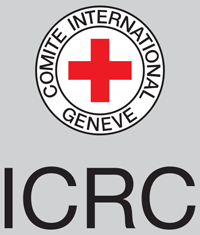ABIDJAN
The rebel group which controls southeastern Liberia, the Movement for Democracy in Liberia (MODEL), has released 28 war detainees to the International Committee of the Red Cross (ICRC), officials said.
"ICRC was approached by MODEL to go and see these detainees. MODEL said they were arrested in connection with war. They have been released in accordance with the terms of the 18 August Peace Agreement," Stocker Reto, ICRC head of delegation in Liberia told IRIN on Wednesday.
ICRC said the detainees had been held in Zwedru, the headquarters town of Grand Geddeh county, and were released earlier this week.
Seven of the 28 arrived in the capital, Monrovia, on Wednesday and ICRC was assisting them to return to their families. The rest opted to stay in Zwedru town, near the border with Cote d'Ivoire, Reto said.
He declined to give further details about them or the reasons for their detention by MODEL.
An ICRC statement said those were given the choice of remaining in Zwedru or being transferred by the ICRC to the coast cities of Buchanan or Monrovia.
The 18 August agreement, signed in the Ghanaian capital, Accra, between the Liberian government and the two rebel groups - MODEL and the main Liberians United for Reconciliation and Democracy (LURD) and other political interest groups, obliges the warring parties to release all political prisoners and prisoners of war.
The parties are required to provide information about their prisoners, abductees or detainees to the ICRC, which will assist such persons to relocate to any part of Liberia.
MODEL is the first of the three warring parties to formally release detainees since the peace deal was signed.
Relief workers in Monrovia told IRIN that the exact numbers of war detainees being held by the three warring parties was unknown. Liberia's prison system totally broke down during 14 years of war while many of those arrested were summarily executed.
This article was produced by IRIN News while it was part of the United Nations Office for the Coordination of Humanitarian Affairs. Please send queries on copyright or liability to the UN. For more information: https://shop.un.org/rights-permissions





